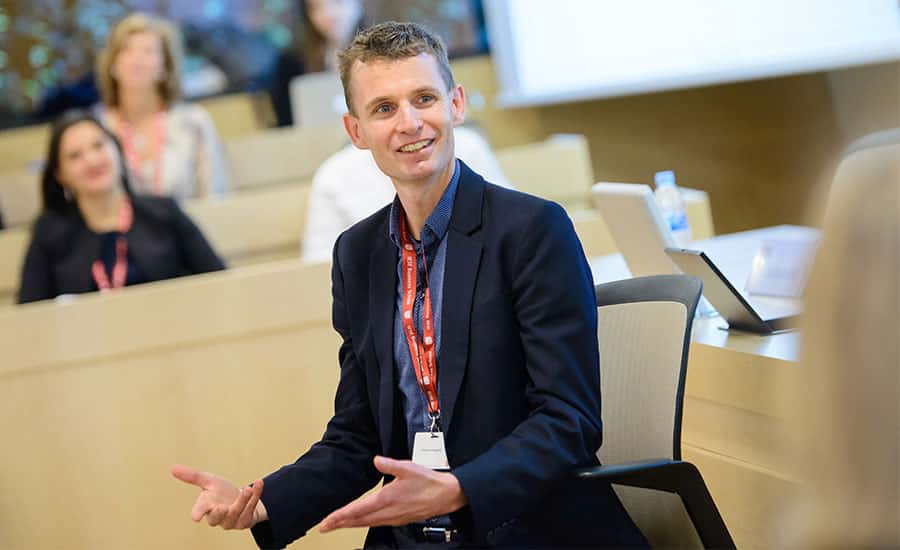Rasmus Hougaard: 3 Reasons Why Optimism Is Better Than Well-Being
Having emerged from the Irish winter, a time which many people struggle with regardless of being under lockdown or not, there are significant reasons to be optimistic. Evenings are getting longer, daily COVID numbers are lowering, and vaccinations are speeding up. Throughout this difficult time, one of the most pervasive questions being asked is ‘how can companies take care of our well-being?’, yet as Rasmus Hougaard believes, a more meaningful question is ‘how can companies create a sense of optimism within their people?’.
Well-being is a prerequisite of optimism, and Hougaard’s three reasons for why the latter is better to strive for are as follows:
- Well-being is passive; Optimism is active: Striving for well-being may help people to better cope but do just exactly that. It’s unlikely to lead to genuine growth and performance. The expectation of being well can also easily lead to disappointment and disillusionment. A better, more actionable goal would be to focus on optimism about the future, and a sense of well-being will follow.
- Well-being is present and past-focused; Optimism is future-focused: Well-being is vitally important, but we need optimism, especially through these disruptive and challenging times as it provides fuel for powering through the hardships of the present and into a future where well-being is guaranteed.
- Well-being sets biased expectations; Optimism sets realistic perspectives: There’s an important distinction to be made between blind optimism and realistic optimism, the latter of which is also called Wise Optimism. Wise optimism is grounded in reality, which means that it improves one’s chances of dealing with setbacks and failures. As opposed to blind optimism, wise optimism is active, not passive. The person using wise optimism does not dismiss the negatives but instead disengages from problems that appear unsolvable and attends to problems they can solve.
Implementing a culture of Wise Optimism in your organisation is fundamental to fostering both well-being and strong performance, and there is no excuse for not doing so due to the fact that change and disruption can be imminent and substantial, something which can not be forgotten once we emerge from the current times.
Credit to Rasmus Hougaard of Forbes https://www.forbes.com/sites/rasmushougaard/2021/01/14/the-3-reasons-why-optimism-is-better-than-well-being-in-times-of-crisis/?sh=1a26b4b41fa7
To book Rasmus Hougaard for your next online event, contact Front Row Speakers on +353 1 485 3991 or email welcome@frontrowspeakers.com.
Recent Posts
- Top 5 Keynote Speakers for UK Events in 2025
- Front Row Speaker Caroline Currid Begins New Role with Munster
- Front Row Speaker Amy Morin’s 13 Exercises to Mentally Strengthen your Children
- Front Row Speakers’ David Meerman Scott on How You Can Turn Customers into Fans
- Front Row Speaker Eric Partaker on Why Your Lack of Respect is Hurting You



